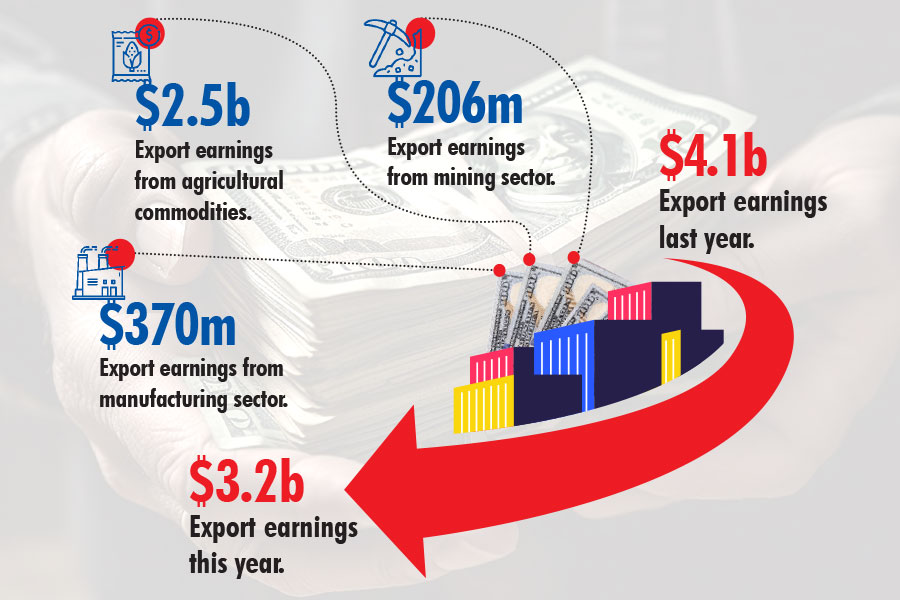
Viewpoints | Dec 10,2018
May 2 , 2020
By MAYA MISIKIR ( FORTUNE STAFF WRITER )
The United Nations Development Programme's (UNDP) latest report, "COVID-19 Human Development, Exploring Global Preparedness & Vulnerability," demonstrates that the impact of the Novel Coronavirus (COVID-19) pandemic will be felt throughout every aspect of society.
In its report, the UNDP underscores that there are different factors that determine the overall preparedness and vulnerability of countries and regions to the ramifications of the virus. The report, in its first data set, lists three main categories to assess how prepared and equipped a country or region is to deal with the damage COVID-19 will inflict: its Human Development Index (HDI), its health system, and connectivity.
Under connectivity, one indicator is the number of mobile subscribers, which includes 79pc of the population in Ethiopia. This indicator also includes what percent of the population has a fixed broadband internet subscription, which includes just 0.4pc of Ethiopia's population. Internet access and connectivity play an important role as lockdowns have necessitated that people communicate, work and continue their education digitally.
Ethiopia, with a Human Development Index value of 0.47 falls in the low development category with other countries that score less than 0.5. A crude assessment of how well Ethiopia’s healthcare system and capacity is performing compared to other countries was also included.
With one physician, eight nurses and midwives, and three hospital beds for every 10,000 people - and just four percent of its GDP going to the healthcare sector - the country falls below the average for sub-Saharan Africa. On average, countries in the region have 2.1 physicians, 10 nurses and midwives and eight hospital beds for every 10,000 people, and spend 5.3pc of GDP on the healthcare system.
Developed countries have an average of over 30 physicians, 81 nurses and 55 hospital beds for 10,000 people. Europe and central Asia are regarded as regions with such HDIs.
During a pandemic, countries rely on their health resources. They can use such data to pinpoint where much more work is needed, according to Nuhamin Petros, a PhD student in epidemiology at the Karolinska Institute in Sweden.
"By analysing and predicting areas that can be particularly affected by the virus, governments can determine where the involvement of the community is crucial, especially in countries like Ethiopia where community engagement is very much a necessity," she added.
"An additional benefit is the lessons learned that identify strategies if anything similar comes into play," Nuhamin said.
COVID-19 has laid bare the double-edged sword of globalisation. The dissemination and efficient exchange of ideas and information has been made possible by a fragile system in which small disruptions can send ripple effects throughout the globe.
In the second data set, the document details which countries are more vulnerable than others due to pre-existing conditions by using indicators such as the percentage of the population living below the poverty line and immediate economic vulnerability. The percentage of people living in poverty, the strength of the social welfare programmes, and the share of the population that require such support are among the indicators.
A very high HDI indicates that only 31.3pc of a country's population are not included in any social protection or labour programmes. Ethiopia has a lower score, 86.8pc of its population are excluded from such programmes.
Ranking at 173 in the HDI globally, Ethiopia has 23.5pc of its population living below the poverty line along with an additional 80pc living under multi-dimensional poverty.
The Ministry of Labor & Social Affairs currently has over 1.3 million people under its Productive Safety Net Programme and is working toward increasing the number of beneficiaries in the programme in response to the impact of the pandemic.
The preparedness and vulnerability of nations vary and so the report is critical in developing a response plan suited to the country's needs, according to Tsegaye Gebrekidan (PhD), an economist at the Policy Studies Institute.
"In a country like Ethiopia, where the preparedness indicators show a lack of resources," he said, "there needs to be a focus on prevention and containment strategies such as the ones we are using."
Indicators like the population’s dependency on remittances, official development assistance, and tourism are also considered part of the nation's overall vulnerability. Ethiopia, with 0.49pc of its GDP coming from remittances, is already experiencing the heat with a reduction of 30pc between January and March. This might fall further to 75pc in the period between February and June, according to the Ministry of Finance.
Even in partial lockdown, the economy is still suffering, according to Tsegaye, who says that the country does not have a buffer for the economic impact and that governments may not have the capacity to deal with it single-handedly, so donors are also essential in this fight.
"Beyond helping us realise what kind of economic response a country should craft, this data can also help when requesting assistance from donors in specific areas," added Tsegaye.
PUBLISHED ON
May 02,2020 [ VOL
21 , NO
1044]

Viewpoints | Dec 10,2018

Viewpoints | Feb 13,2024

Fortune News | Jul 01,2023

Editorial | Nov 18,2023

Viewpoints | Aug 16,2020

Commentaries | Jul 07,2024

Radar | Sep 28,2019

Featured | Nov 23,2019

Fortune News | Jan 03,2025

Radar | Dec 19,2020

Dec 22 , 2024 . By TIZITA SHEWAFERAW
Charged with transforming colossal state-owned enterprises into modern and competitiv...

Aug 18 , 2024 . By AKSAH ITALO
Although predictable Yonas Zerihun's job in the ride-hailing service is not immune to...

Jul 28 , 2024 . By TIZITA SHEWAFERAW
Unhabitual, perhaps too many, Samuel Gebreyohannes, 38, used to occasionally enjoy a couple of beers at breakfast. However, he recently swit...

Jul 13 , 2024 . By AKSAH ITALO
Investors who rely on tractors, trucks, and field vehicles for commuting, transporting commodities, and f...

Jul 5 , 2025
Six years ago, Ethiopia was the darling of international liberal commentators. A year...

Jun 28 , 2025
Meseret Damtie, the assertive auditor general, has never been shy about naming names...

Jun 21 , 2025
A well-worn adage says, “Budget is not destiny, but it is direction.” Examining t...

Jun 14 , 2025
Yet again, the Horn of Africa is bracing for trouble. A region already frayed by wars...